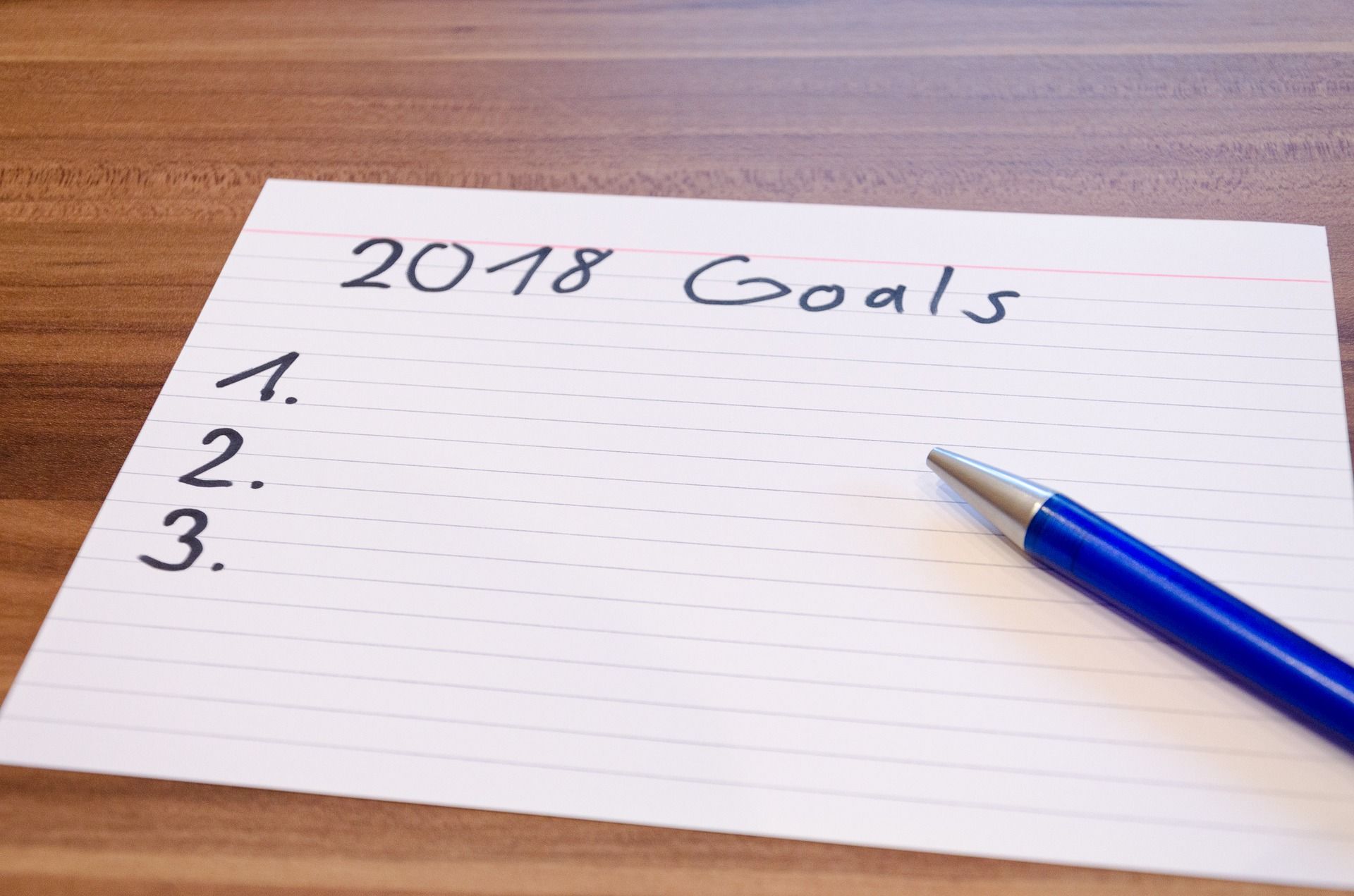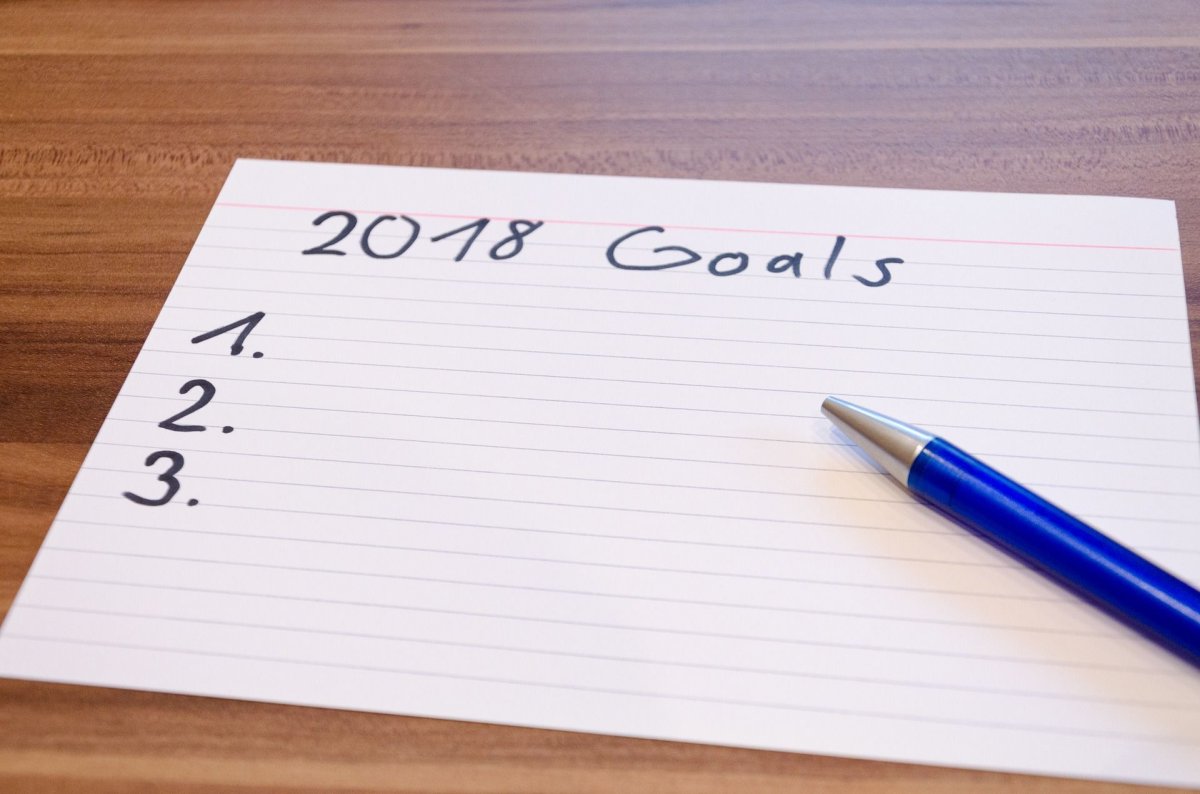
Being a better person is the top New Year's resolution, according to a new poll from Marist College in New York.
Their findings showed that about 12 percent of those surveyed want to become a better person in 2018. The same amount reported wanting to lose weight in the new year. Only 7 percent of those surveyed want to improve their overall health, and 9 percent would like to eat healthier, exercise more or get a better job.
Related: Achieve Your New Year's Resolutions in 2018: 5 Strategies to Make This Year Different

While New Year's resolutions are a big focus this time of year, the survey revealed that only about 44 percent of Americans were planning on creating goals for 2018. For those who do want to make changes but aren't sure where to start, here are 15 ideas of easy, but meaningful, changes one can make:
- Eat more fish. As we previously reported, a recent study indicated that fish helped children sleep better and improved IQs by up to four points when eaten every week. Omega-3 fatty acids found in fish also have been linked to lower rates of heart disease.
- Make meaningful connections. Health professionals at the Aspen Ideas Festival recently spoke about how an increasing amount of people feel lonely, which takes a toll on mental and physical health. While you can have many friends and still feel lonely, talking about your feelings with others can provide social support.
- Take a warm bath. According to a story on Bravo, a study from March indicated that a hot bath of 104 degrees could burn as many calories as a 30-minute walk.
- Go to bed early. Poor sleep is linked to diabetes, heart disease, obesity and depression, according to the Centers for Disease Control. Create a self-imposed bedtime, set an alarm as a reminder, and aim to hit the hay in time to get a solid seven to eight hours.
- Volunteer. According to an article published by Harvard Health Publications, giving your time can lower blood pressure, and even helps those who volunteer frequently live longer.
- Meal prep. And no, this doesn't mean you can't enjoy a meal out. Research from Johns Hopkins University showed that people who make their own meals consume fewer calories than those who don't cook.
- Give up soda (yes, even diet). While some opt to drink calorie-free beverages for weight-loss purposes, a recent study indicated that people who regularly consumed diet soft drinks were at an increased risk for dementia or stroke, reported the The Washington Post.
- Hit the gym. Aside from all the obvious reasons—weight management and heart health—research has shown that exercising is good for your brain, too. A study published last month indicated that physical activity could improve memory and slow aging.
- Don't eat after 9 p.m. Yes, you've heard this many times before, but as we previously reported, late-night snacking goes against our biological clocks. A study from earlier this year indicated that eating later in the evening could increase your heart disease risk.
- Pick up a book. Reading is good for your brain, but health professionals say that the hobby also can enrich your social skills. "People who read fiction may understand people better than others," cognitive psychologist Keith Oatley explained to CNN. "A work of fiction is a piece of consciousness that can pass from one mind to another and that reader can make it their own."
- Eat salad once a week. In a story published earlier this month, Newsweek reported that eating leafy greens weekly could keep your brain up to 11 years younger.
- Spend more time outside. Mounting research shows that enjoying nature and green space can help lower stress and may reduce symptoms of depression and anxiety.
- Get creative. Remember the adult coloring book craze? Well, they have benefits other than serving as a way to fight boredom. "Coloring definitely has therapeutic potential to reduce anxiety, create focus or bring [about] more mindfulness," certified art therapist Marygrace Berberian told CNN in a story last year.
- Use social media less. It's good to be connected, but even Facebook recently admitted that too much time online could be bad for your mental health. Research has shown that children and teens in particular may have lower self esteem due to social media's influence. Limit how much time you spend each day and replace that online FOMO with quality time spent networking IRL.
- Save for the future. It's easy to get caught up in the day-to-day expenses, but saving for your financial future is important. As CNN reported, many Americans don't even have $500 stored away for emergencies. Skip happy hour once a month, buy generic or utilize the library for books, and immediately transfer the money you saved into a separate account.
Uncommon Knowledge
Newsweek is committed to challenging conventional wisdom and finding connections in the search for common ground.
Newsweek is committed to challenging conventional wisdom and finding connections in the search for common ground.
About the writer
Melissa is a science writer covering health for Newsweek and has contributed to Inc., Dr. Oz The Good Life, Men's Fitness, Marie Claire and others. She earned ... Read more
To read how Newsweek uses AI as a newsroom tool, Click here.








